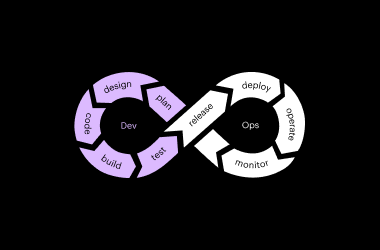Label
How to get started in DevOps?
Today's world demands that software development and release of functionality be increasingly agile. This continuous delivery of value is only possible by implementing a DevOps culture. We can help you create future-proof solutions in record time!
Label
What is DevOps?
It is a software engineering practice that aims to unify software development (Development) and software operations (Operations), to deliver high quality IT services and products quickly.

Advantages of implementing DevOps
- The integration of people is achieved through true teamwork.
- Internal communication becomes more fluid.
- It is possible to detect problems and propose solutions quickly.
- All production cycles are shortened.
- You react faster to contingencies.
Basic recommendations for getting started in DevOps
Patience
It is advisable to internalize that you can't and don't have to change everything from the start.
Go from micro to macro
It is advisable to start with small and unambitious objectives, to be able to evaluate the results and keep improving.
Do not break current development processes
DevOps practices can be incorporated in parallel to the work being done within the organization.
Avoid silos
Teams should not work separately and independently.
Encourage shared responsibility
A sense of group responsibility for maintaining the product and building new projects should be encouraged.
Think about the system
It is important to have the big picture of everything that is going on. Systems are complex and must be viewed holistically.
It is advisable to internalize that you can't and don't have to change everything from the start.
Go from micro to macro
It is advisable to start with small and unambitious objectives, to be able to evaluate the results and keep improving.
Do not break current development processes
DevOps practices can be incorporated in parallel to the work being done within the organization.
Avoid silos
Teams should not work separately and independently.
Encourage shared responsibility
A sense of group responsibility for maintaining the product and building new projects should be encouraged.
Think about the system
It is important to have the big picture of everything that is going on. Systems are complex and must be viewed holistically.


How to start?
Step 1
Make a general analysis, including the organization's maturity model, the metrics to be measured, the training to be done by the team and the scope and limitations of the work tools.
Step 2
Create a work plan defining the teams and the actions to be implemented, which can be:
Review the metrics, plan the next project, and give feedback on the adoption of these practices and the results obtained.
Make a general analysis, including the organization's maturity model, the metrics to be measured, the training to be done by the team and the scope and limitations of the work tools.
Step 2
Create a work plan defining the teams and the actions to be implemented, which can be:
- The automation of small projects (to later become more sophisticated throughout the process).
- The definition of the tests associated with each functionality to be implemented.
Review the metrics, plan the next project, and give feedback on the adoption of these practices and the results obtained.
GeneXus, the best option to do DevOps
GeneXus is the Low-Code Platform for software development that uses Artificial Intelligence to simplify and automate the tasks of creation, evolution and maintenance of applications and technological systems.
Only with GeneXus is it possible to build complex solutions (including entire ecosystems such as Super Apps) in a simple, agile and future-proof way.
Under the premise of automating everything that can be automated, GeneXus has a variety of tools that allow DevOps in the cycles of builds, deployments, testing, API checks, static code, performance, among others.
Automating DevOps is key to accelerate production processes, and GeneXus has the technology and experience to help your company define the strategies for this continuous and accelerated update and evolution.
Only with GeneXus is it possible to build complex solutions (including entire ecosystems such as Super Apps) in a simple, agile and future-proof way.
Under the premise of automating everything that can be automated, GeneXus has a variety of tools that allow DevOps in the cycles of builds, deployments, testing, API checks, static code, performance, among others.
Automating DevOps is key to accelerate production processes, and GeneXus has the technology and experience to help your company define the strategies for this continuous and accelerated update and evolution.


GeneXus…
- It is easy to learn.
- It is multiplatform and multi-experience (it generates optimal applications for Apple iOS, Google Android and Web, among others, from the same specification).
- It offers automatically controlled security.
- It allows working with a single reference repository to minimize manual errors, generating an optimal level of traceability that identifies from the installed version to the fixes and data of changes made and unwanted changes.
- It has the necessary tools to automate all steps of the lifecycle of solutions.
- It facilitates integration with Azure DevOps, Jenkins, IBM, Amazon, Google, Azure, SAP, Dockers and Kubernetes.
DesignOps
GeneXus has the first language for modeling Design Systems (Design System Object) so you can customize your designs as you wish.- GeneXus also facilitates the
import of external designs from Sketch and Figma , reducing the friction to get from the design to a pixel perfect implementation. The new version, GeneXus 18, comes pre-installed with Unanimo , the Design System that provides consistent experiences across all interfaces and components of a solution.It allows packaging and sharing with other teams, a module with an entire Design System.


DevSecOps
GeneXus enables security modeling , reducing risks throughout the entire cycle.SAST : The GeneXus Security Scanner allows a recurrent static analysis of the model to reduce these risks.- Through the
GeneXus Access Manager (GAM) , module, the unified place where everything related to security is located, you will be able to solve the issues of authentication and authorization of applications (the GAM supports any identity provider on the market).
Everything you need to know about DevOps
View All
Watch these videos.
-
Automating DevOps with GeneXus 18
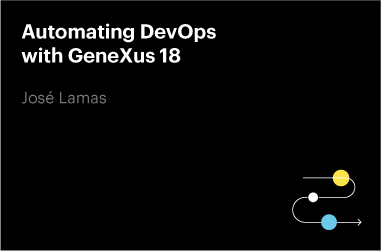
-
Testing with GeneXus 18
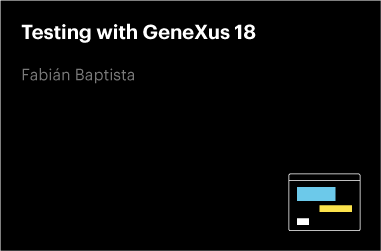
-
The Importance of nurturing a DevOps Culture

-
Software Testing Approaches with GeneXus
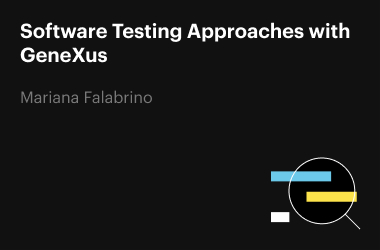
-
Deploying GeneXus Applications
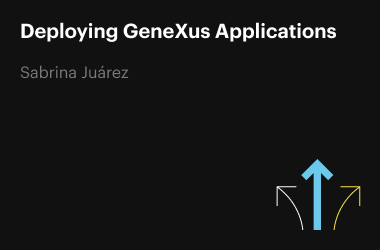
-
How to automate Continuous Integration processes to enhance the Application Development Cycle
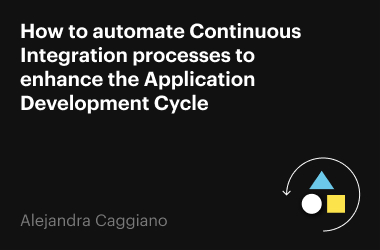
-
DevSecOps: Redefining the foundations of security with Static Code Analysis

-
Software Versioning and Team-based Development with GeneXus Server
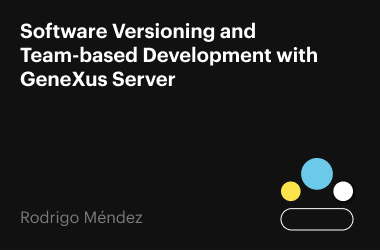
-
DesignOps Strategies: From Design to Code the GeneXus Way

-
Amplify Design Value and Impact at Scale with DesignOps
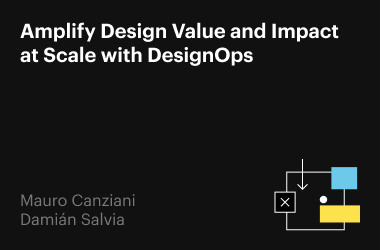
Ask Me Anything (AMA) Session
View All
In these online cycles, our experts answer questions from attendees and share tips and news about areas related to the DevOps culture.
Recent blog posts about DevOps
GeneXus CTO, Gaston Milano, details which are the elements that are the basis for the success of this type of solutions.
These are the 4 keys to speed up software development and functionality with DevOps.
Find out all about this tool that is included in the GeneXus Integrated Development Environment (IDE), to improve application security.
GXtest is the product for designing, automating and executing functional tests in web and mobile applications developed with GeneXus.
In this post we explain the steps to automate unit, web interface and mobile interface tests with GXtest.
In this post, we explain why it is important to automate testing at all stages of application development.
Link label text

Whitepaper
DevOps: implementation guide
We can help your company innovate and respond faster to business needs.
Complete the form and we will contact you as soon as possible.
